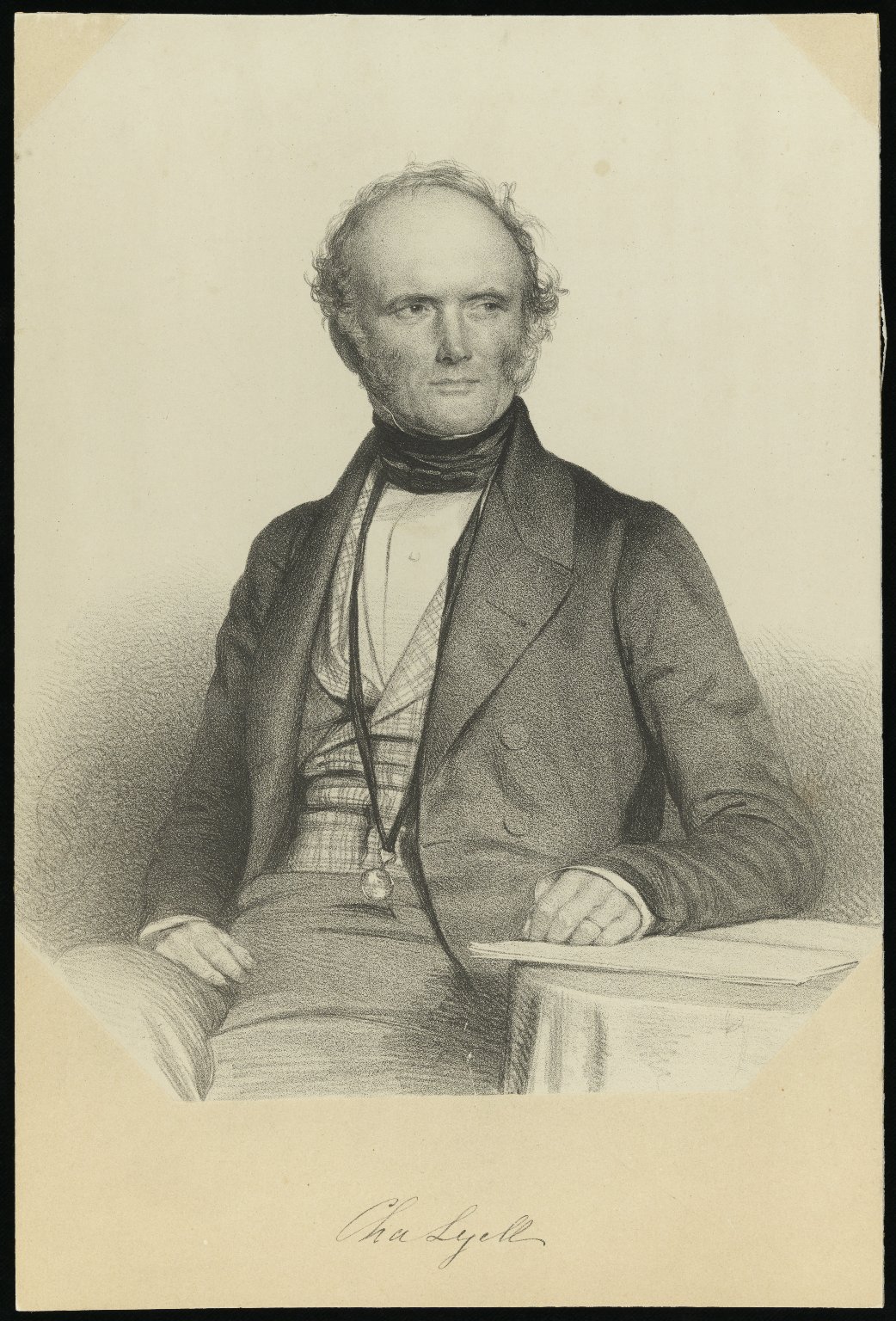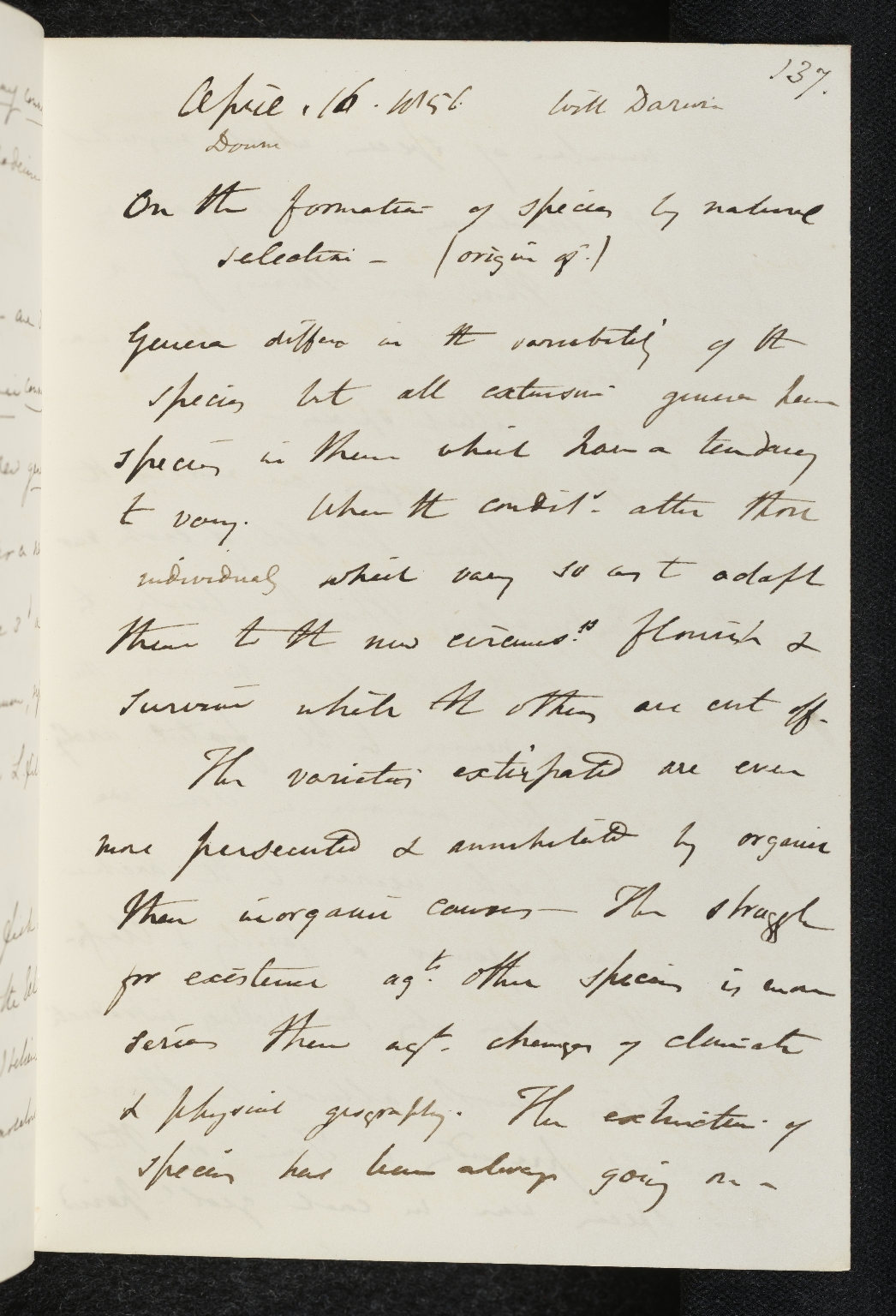Conversations between Scottish geologist Charles Lyell and Charles Darwin are on public display for the first time.
The archive of letters, maps and sketches, including heavily annotated editions of Lyell’s landmark book Principles of Geology, are being exhibited at the University of Edinburgh.
Included in the exhibition are some 294 notebooks that were saved from export and purchased from the Lyell family through a £1million fundraising campaign in 2019.
Of particular significance are Lyell’s notes on his intimate conversations with Darwin before publication of the Origin of Species.

Charles Lyell.
Lyell is credited with playing a pivotal role in shaping Darwin’s scientific thinking on the processes involved in evolution.
‘Sir Charles Lyell is one of the most important scientific figures of the 19th century,’ Daryl Green, Head of Heritage Collections at the university said.
‘This exhibition will reveal many of the inner workings behind theories that have been pioneering for modern geology, as well as shedding more light on such a historically significant period for science.’

One of Charles Lyell’s notebooks.
Lyell, who died in 1875, is a key figure in the history of geology and science in the nineteenth century.
He is known for advocating the theory that the processes that are shaping the Earth’s crust today can be used to interpret events in the distant geological past.
In Principles of Geology, Lyell argued that processes such as erosion, sedimentation, and volcanic activity have been taking place gradually over a long period of time.
This differed from the common belief at that time that catastrophic events unlike those ever witnessed by humans had shaped Earth’s surface.
Lyell’s work is fundamental to environmental and ecological thinking that underlies the development of the science of geology.
To add further context to Lyell’s life and career, the exhibition will draw on his collected fossils, specimens and shells alongside a selection of rare books by Isaac Newton and James Hutton, and contemporaries such as anti-slavery activist Frederick Douglass.
Read more on Scottish Field’s News pages.
Plus, don’t miss the November issue of Scottish Field magazine.
TAGS

